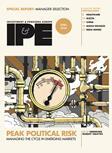UK- Consultant Watson Wyatt has called for the abolition of the state second pension and instead recommended that employers be given the freedom to design the pension schemes they offer their employees.
The suggestion is part of Watson Wyatt’s submission to Alan Pickering’s government-sponsored pensions review. Pickering, now at Watson Wyatt, is due to report to work and pensions secretary Alistair Darling in June.
In its submission, Watson Wyatt suggested the government stick to basic provision and stop providing second tier pensions. Colin Singer, a partner at Watson Wyatt, said the second tier, and the ability to opt out of it, had “distorted private sector pension provision in the UK.”
Singer also added that the principle of allowing good occupational schemes to contract out has led to some companies to switch from defined benefit to defined contribution schemes. “SERPS, and now the state second pension, are a form of compulsion and give the state the opportunity to impose its preferences on private sector pension provision,” he said.
Watson Wyatt said that the state had been able to influence the style of private provision by changing the terms and conditions of opting out. Companies choosing to opt out faced what Singer called “a quagmire of legislation.”
“They can no longer control how scheme funds are invested, even though they will have to pick up the bill for any investment failure. And if they fund the scheme generously, they will find it very difficult to reclaim any of the resulting surplus.
“Increasingly, their choice has been either to provide a benefit guarantee that they can no longer control - and in many cases no longer afford - or to provide no guarantee at all.”
"Employers are voting with their feet on years of accumulated frustration with political interference in their pension schemes," said Singer.
Elsewhere and in the run up to the budget, the consultant Mercer Human Resource Consulting is pressing the chancellor Gordon Brown to increase the contracting-out rebates to cut the number of people contracting back into the second state scheme.
European Partner Tim Keogh said: "by adjusting the rebates in the short-term, the Chancellor would demonstrate, in a concrete way, the government's claims that it wants to increase private sector pension provision.
Echoing Watson Wyatt he added: “in the longer term, the government should grasp the nettle on pension reform and simplification, and review the entire role of state second pension provision.”






No comments yet